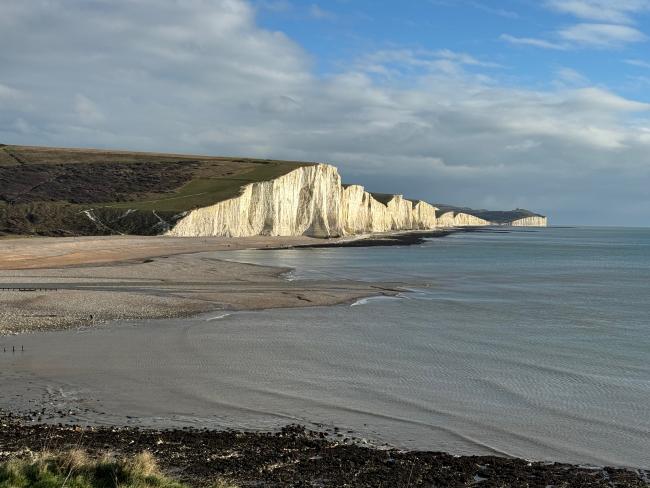31 October 2025

The mouth of the Cuckmere river in Sussex, one of those surveyed. Photo Workers.
The disgraceful state of our country’s rivers and lakes is common knowledge. And there is growing awareness that this is inflicted by long-term underinvestment.
The profit-oriented water and sewerage companies have been negligent in their ownership of this essential infrastructure.
Drastic action
The South Downs National Park recently called for drastic action to improve the health of rivers and lakes in its area. A recent report found that 90 per cent of them failed to meet good ecological standards.
The report, Water in the Park, surveyed six river catchment areas in Hampshire, Surrey and Sussex. Sewage discharges, nitrate and phosphate pollution, pesticides, physical barriers on watercourses and urban pollution from roads were all to blame for the rivers’ worsening state.
‘The state of waters in the national park declined between 2014 and 2022.’
The report also found that three in four estuaries and coastal waters were not up to the benchmark set by the Water Framework Directive. And over half of groundwaters also failed to achieve good status. The state of waters in the national park declined between 2014 and 2022.
The report also found that up to 14 per cent of businesses were not connected to the main sewer, and that more “forever chemicals” and pharmaceuticals were being found in rivers and streams.
National problem
This is a national problem. In October the Environment Agency reported on the 2024 environmental performance of water companies in England: and gave them the lowest ever rating.
Calls for action are likely to result in more promises of regulation and little progress. That’s unless people in Britain take on the task of ending the private water companies’ operational and managerial control.
Rather than profit-driven sector, people want investment in clean water systems and efficient sewage management for the benefit of society and the environment. The question is how to achieve that.
